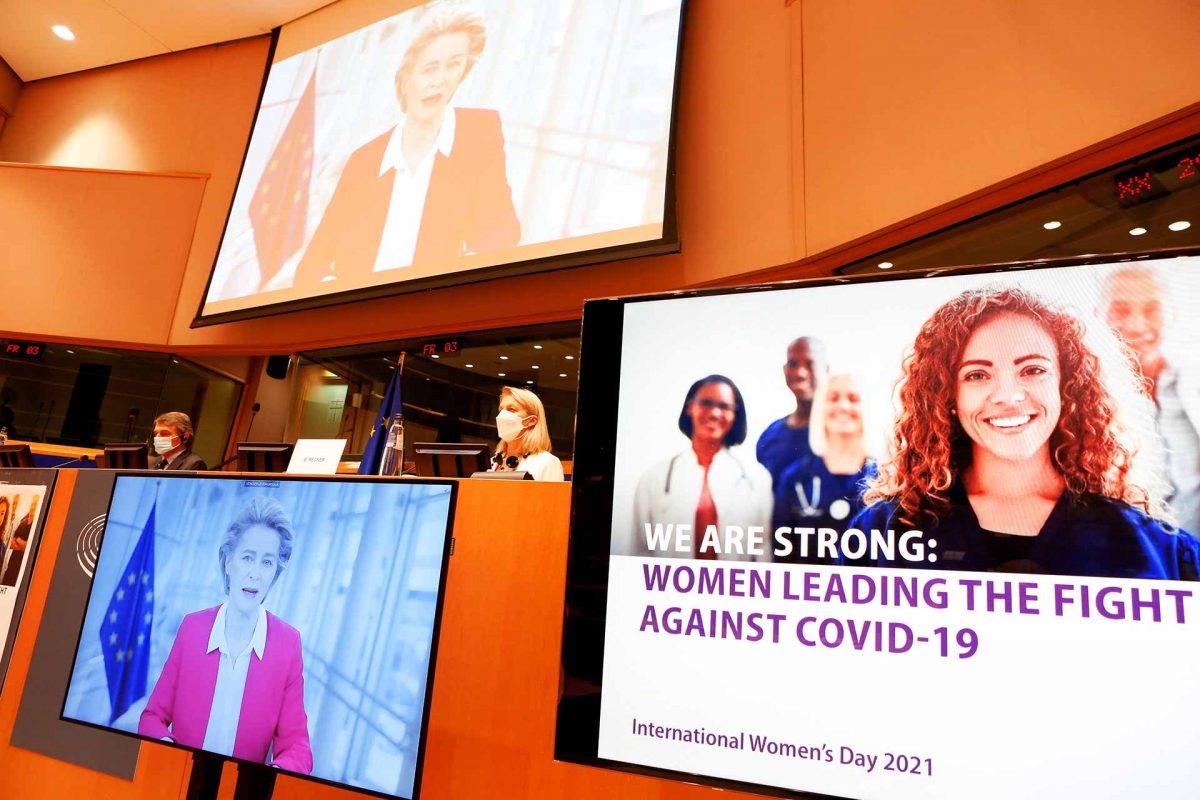The right to equal pay for the same work or work of equal value between female and male workers has been a founding principle of the European Union since the 1957 Treaty of Rome. Equal treatment of women and men in matters of employment and occupation already requires employers to ensure equal pay for equal work or work of equal value between women and men. COVID-19 pandemic affected women disproportionately, particularly when it comes to work-life balance and caring responsibilities.
It was complemented in 2014 by a Commission Recommendation on pay transparency. Despite this legal framework, the principle of equal pay is not fully implemented and enforced.
The gender pay gap in the EU remains at 14.1% (Eurostat)
Lack of pay transparency is one of the key obstacles to enforcing this right. It stops workers from knowing how their pay, on average, compares to that of their colleagues of the other sex doing equal work or work of equal value. In addition, without pay transparency, employers do not necessarily review their payrolls, nor check if their pay systems and job grading do not omit the valuation of relevant skills (e.g. in the service economy). Lack of pay transparency thus creates a grey zone favouring the perpetuation of gender bias in the setting of salaries.
This proposal will address these issues by strengthening the application of the equal pay principle through pay transparency and improved enforcement mechanisms.
Gender pay discrimination is one of the reasons women in the EU earn 14% less than men on average.
Pay transparency improves workers’ access to information on pay. It also raises awareness of discrimination and makes it easier to enforce equal pay.
It also helps women file claims related to pay issues. This initiative will:
- introduce binding pay transparency measures
- make pay systems more transparent
- improve public understanding of the relevant legal concepts
- strengthen enforcement mechanisms.
What does equal ‘pay’ include?
The proposal sets out a broad concept of ‘pay’ comprising not only basic salary. Complementary components count, whether in cash or in kind, that workers receive directly or indirectly, from their employers. These components include bonuses, overtime compensation, travel facilities (including cars provided by the employer and travel cards), housing allowances, compensation for attending training courses, payments in case of dismissal, overtime supplements, gratuities paid at the discretion of the employer, statutory sick pay, statutory required compensation, and occupational pensions.
The principle of equal pay does not mean that all workers must be paid equally; it means that any pay differences must be based on objective criteria, not related to sex.
Gender Equality: Recovery plans must support more women to top positions

How did COVID-19 crisis impact women employees?
The available data shows that COVID-19 pandemic affected women disproportionately, particularly when it comes to work-life balance and caring responsibilities. Women have taken on a disproportionate share of caring responsibilities prompted by the closure of schools and support services, endangering hard-fought progress towards gender equality.
We meet he consequences of the COVID-19 crisis across the board. Women found themselves at the frontline – as doctors, nurses, pharmacists, teachers, or shop assistants. Their overrepresentation in lower paid sectors and occupations, such as for instance hospitality, retail, or personal services, has made them particularly vulnerable in the labour markets struck by the COVID-19 crisis. It is important not to continue with the breach of the fundamental right to equal pay and not to continue to apply the biases which worsen women’s economic situation. The Commission 2021 report on gender equality reports on these developments in the EU; it will be available here [as of 5 March].














